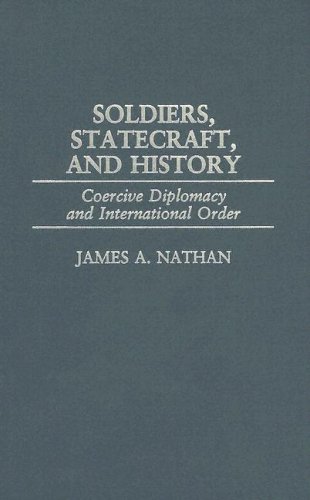

Most ebook files are in PDF format, so you can easily read them using various software such as Foxit Reader or directly on the Google Chrome browser.
Some ebook files are released by publishers in other formats such as .awz, .mobi, .epub, .fb2, etc. You may need to install specific software to read these formats on mobile/PC, such as Calibre.
Please read the tutorial at this link: https://ebookbell.com/faq
We offer FREE conversion to the popular formats you request; however, this may take some time. Therefore, right after payment, please email us, and we will try to provide the service as quickly as possible.
For some exceptional file formats or broken links (if any), please refrain from opening any disputes. Instead, email us first, and we will try to assist within a maximum of 6 hours.
EbookBell Team

4.8
84 reviewsThe increasing capacity of states to muster violence, the concomitant rise of military power as a meaningful instrument of foreign policy, and the frequent episodic collapse of that power are considered in this examination of force, order, and diplomacy. Nathan points to periods of relative order and stability in international relations-the time immediately prior to the rise of Frederick the Great, for example, or the half century after the Napoleonic Wars-as times when states have been most vulnerable to spoilers and rogues. Only the power of the Cold War blocs fostered durable order. Now, notwithstanding novel elements of globalization, international relations appear as dependent as ever on the prudent management of force.
Students, scholars, and soldiers are frequently exposed to Clausewitz, Westphalia, Napoleon, World War I, and the like. But what makes these events and individuals so important? This book is Clausewitz's successor, insisting that soldiers and statesmen know and master the integrative potential of force. Nathan provides a narrative account of the people and events that have shaped international relations since the onset of the state system. He asserts that an understanding of the limits and utility of persuasion, as well as the corresponding limits and utility of force, will help assure national security in a world filled with more uncertainties than ever in the last 50 years.